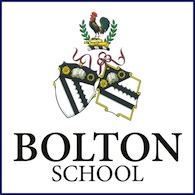At the time of the recent BETT (Educational Technology) show it was said by one speaker that too much of educational research was the latest æsnake oilÆ. This relatively obscure allusion to the term used for those selling fake medicines in the American Mid-West may have escaped some. But it is a stinging rebuke. Is too much of educational research a useless panacea? Is the use of technology especially so? Like this comment, much debate about educational research takes place with high volume and minimal depth. Just think æto phonic or not to phonicÆ in learning to read.
There is no doubt that much is changing in educational methods. For decades essentially teaching was an æapprenticeÆ trade û one taught as one had been taught and was shown how to teach by those who were teachers. This sometimes conflicted with modern ideas and in due course a separation of educational research and the classroom emerged. ôThose who canÆt teach, researchö became the bumper sticker of choice. The chasm between the University educational researchers and teaching only deepened.
Then some disruptive changes took place. One was the push for teacher education to be focused in schools not the universities. This was almost an explicit attempt to support the æcraftÆ of teaching by denying the æfadsÆ of education departments. Without a doubt damage has been done, as many of those fads were valid and the apprenticeship model is not good at innovation and change. Good for carpentry, but not so good for teaching. Another disruption has been technology.
As the pendulum swings there are encouraging developments. Many teachers research in school. The educational endowment project and other organisations have collated æwhat worksÆ overviews of many years of research. This is useful and soundly based in classroom experience. Changing concepts of neuroscience are being applied to the business of teaching. This will all take time, as research projects do. I do hope it is allowed the time to take root, as the ever charging train of educational reform goes on. If not we will never be able to properly separate the sellers of snake oil from the real educational insights our children need in their schools.

Leave a Reply